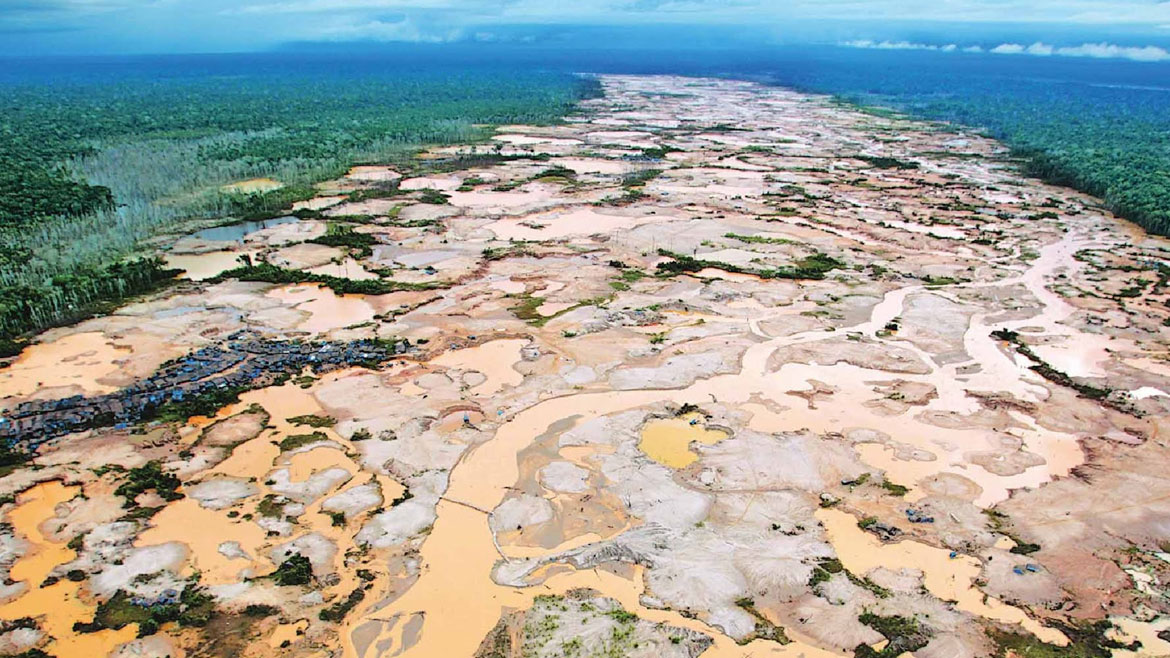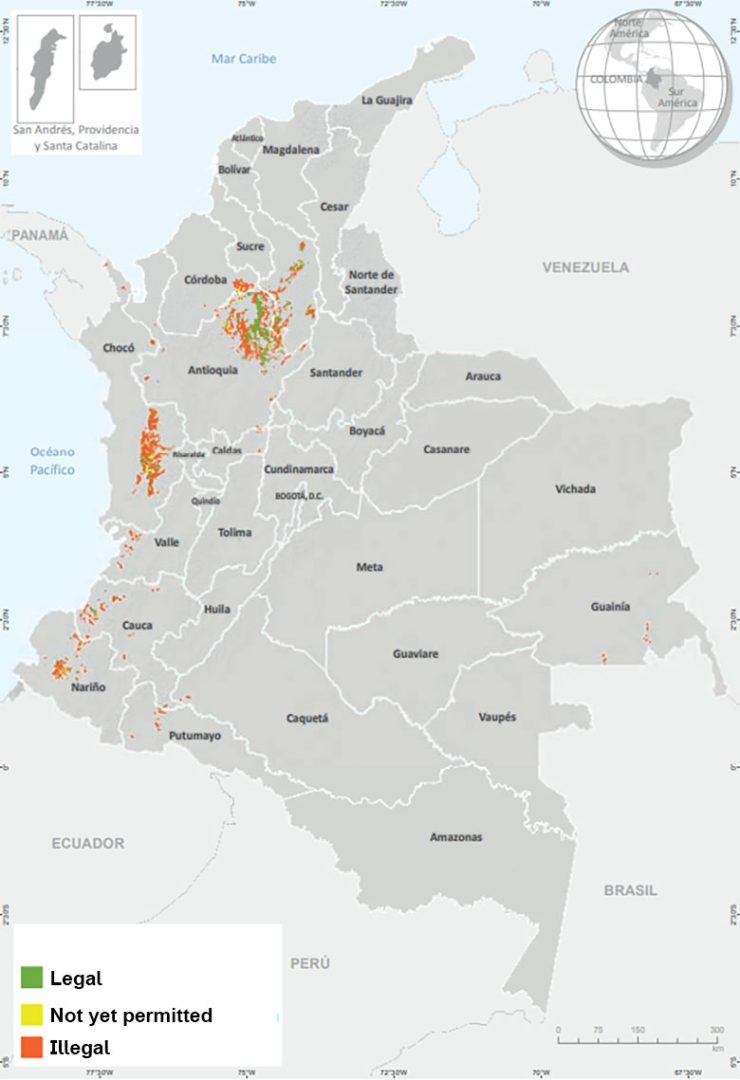Gold has become the most important revenue stream of Colombia’s illegal armed groups, according to the organized crime agencies of the Organization of American States (OAS) and the United Nations (UN).
According to the UN’s Office on Drugs and Crime (UNODC), Colombia produces approximately 2% of the world’s gold.
More than 70% of this gold would be produced by illegal armed groups like guerrilla group ELN, paramilitary organization AGC and groups formed by dissidents of the now-defunct guerrilla group FARC, according to the OAS’ Department Against Transnational Criminal Organizations (DTOC).
The DTOC and Global Financial Integrity (GFI) additionally found evidence indicating that illegal armed groups would be using gold exports to laundering money on an industrial scale.
The money laundering associated with illegal mining would make this criminal activity more profitable than drug trafficking, which has long financed Colombia’s illegal economy.
UNODC
Where the illegal mining is taking place
More than 70% of the 98,567 hectares (381 square miles) where the UNODC registered gold mining were used for illegal mining in 2021.
Ten municipalities are responsible for more than a quarter of Colombia’s gold production takes, according to the UN agency.
Almost 60% of the gold mining in these remote municipalities in the Choco, Antioquia and Bolivar provinces is illegal, said the international agency.
The DTOC found that 12 gold mining municipalities had more miners registered with the Mining and Energy Planning Unit than adult inhabitants registered by national statistics agency DANE.
Other statistics deemed suspicious by the OAS agency were those of the mining statistics reported by provinces.
The Choco province, for example, reported a 64% reduction in gold production between 2014 and 2018, and a 3% reduction in hectares used for gold mining during the same period.
Change in used hectares (EVOA) and production
“This would indicate that the disparity between gold production and evidence of alluvial mining activity in Chocó is due to an increase in illegal mining,” according to the DTOC.
Ties to legal mining companies
Over the past few years, authorities have arrested the executives of some of Colombia’s main gold exporters.
In some cases, legal mining companies outsources parts of their activities to shell companies controlled by illegal armed groups, allowing them to make money legally.
In other cases, the mining companies would buy the illegally mined gold from illegal armed groups and report it as part of their legal production, effectively laundering money from the illegal armed groups.
Colombia gold traders laundered more than $3 billion since 2015: prosecution
Colombia’s sketchy export statistics
The OAS agency also expressed concerns about money laundering based on the export revenue statistics after finding major discrepancies with the value of imports reported by countries that bought the precious metal.
The Colombian Mining Association (ACM) said that Colombia’s international gold traders exported $426 million in gold last year after a major collapse in 2020.
Gold exporters sent bogus invoices with a total value of $5.6 billion between 2010 and 2018, the equivalent of more than 30% of Colombia’s exports in those years, the GFI said last year.
GFI project manager Mario Valencia
The financial crimes unit of Colombia’s prosecution (UIAF) warned in 2019 also about the illegal imports of machines and chemicals like mercury, which is crucial for illegal mining.
The DTOC added that drug trafficking organizations use revenue from cocaine exports to invest in illegal mining activity in some cases through the creation of shell companies and contracts with legal mining companies.
DTOC
The revenue obtained through illegal mining is subsequently invested in real estate or other sectors of the legal economy.



